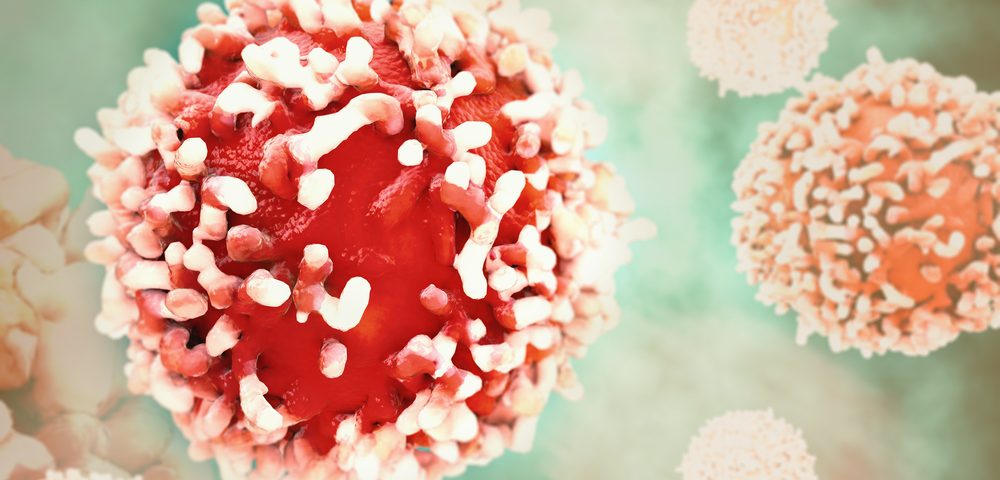Immune checkpoint inhibitors may be safe and effective in advanced cancer patients with human immunodeficiency virus (HIV), according to a review study.
The research, “Safety and Efficacy of Immune Checkpoint Inhibitor Therapy in Patients With HIV Infection and Advanced-Stage Cancer: A Systematic Review,” was published in JAMA Oncology.
HIV-positive patients have a greater risk of developing cancer. Conventional chemotherapy has significant limitations for these patients, given its potential interaction with antiretroviral medications and reversal of HIV suppression.
Immune checkpoint inhibitors, which block the cancer strategies to evade immune attack, have become standard treatment for several types of advanced cancers. However, clinical trials of these treatments have generally excluded people with HIV, leading to scarce data for effectiveness in these patients.
The team at Georgetown Lombardi Comprehensive Cancer Center conducted a systematic review of the literature to address this gap. Thirteen peer-reviewed articles and four abstracts presented at relevant meetings were analyzed, including 73 HIV patients (66 men, mean age 56.1 years) with advanced cancer.
Most cases were from case reports and case series. The most frequent cancer types were non-small cell lung cancer (NSCLC, 34.2%), melanoma (21.9%), and Kaposi’s sarcoma (12.3%).
Overall, 62 patients were treated with anti-PD-1 inhibitors — including Opdivo (nivolumab, by Bristol-Myers Squibb) and Keytruda (pembrolizumab, by Merck) —, six with the anti-CTLA-4 therapy Yervoy (ipilimumab, also by Bristol-Myers Squibb); four with a combination of Opdivo and Yervoy; and one with Yervoy followed by Opdivo.
Sixty-nine patients were receiving antiretroviral therapy (ART) when they started checkpoint inhibitor treatment. Among the 37 patients with a known baseline viral load, 31 (83.8%) had an undetectable amount of virus.
Treatment was generally well-tolerated. Six patients experienced severe or worse immune-related adverse events, such as insulin-dependent diabetes and hepatitis, four of whom had been treated with Yervoy-containing regimens. No patient experienced immune reactivation inflammatory syndrome, characterized by worsening of preexisting infections following the initiation of ART.
The HIV amount in the blood became detectable in only two of the 28 patients with undetectable load at baseline. In contrast, five patients with detectable amount at study start experienced a reduction in viral load with immune checkpoint inhibitor treatment. In four of these cases, the virus became undetectable.
“It could be that checkpoint inhibitors are helping to suppress HIV, though this finding needs to be verified in future studies,” Chul Kim, MD, the study’s senior author and a professor at Georgetown Lombardi, said in a press release. Kim also mentioned other studies supporting the hypothesis that checkpoint inhibitors “may restore an immune response against HIV in patients whose immune system is exhausted by its long fight with HIV.”
Treatment effectiveness was analyzed in 45 patients. Anti-cancer responses were seen in 30% of NSCLC patients (30%) treated with Keytruda or Opdivo, 27% of melanoma patients treated with a PD-1 inhibitor, Yervoy, or Yervoy plus Opdivo, and 63% of those with Kaposi’s sarcoma on Opdivo.
Importantly, the response rate in NSCLC patients with HIV was similar to that found in clinical trials of anti-PD-1 inhibitors in cancer patients without this virus, the team noted. Also, the investigators considered that effectiveness in people with Kaposi’s sarcoma, which is a difficult-to-treat cancer type strongly linked to HIV infection, “is encouraging and warrants further evaluation.”
“Immune checkpoint inhibitors may be a safe and efficacious treatment option in this patient population,” the scientists wrote.
“We hope our finding will lead to increased study of checkpoint inhibitors in patients with HIV and cancer,” said Kim, also a physician at MedStar Georgetown University Hospital and MedStar Washington Hospital Center.
Aiming to have better insight into these findings, the team soon will launch a clinical study to evaluate immune checkpoint inhibitors as first-line treatment in lung cancer patients with HIV or viral hepatitis. “We will be able to look at what effects checkpoint inhibitor therapy has on both the cancer and the infection,” Kim said.


